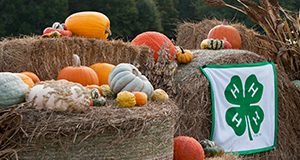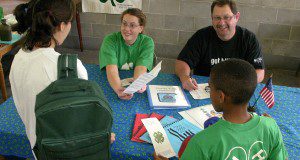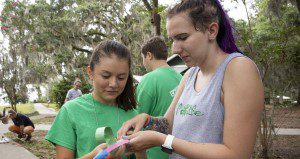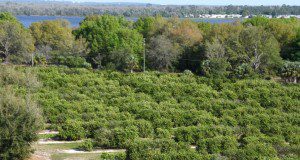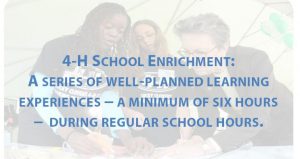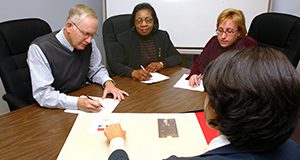Even though many recognize FFA and 4-H, there is still a big disconnect in understanding the similarities and differences between them. This 4-page document serves as an educational tool for school-based agricultural education and 4-H programs, and provides a background of the history, characteristics, and membership process of these long-standing organizations. Written by Debra Barry, Alyssa Shepherd, Jennifer Patton, and Stephen Gran, and published by the UF/IFAS Department of Agricultural Education and Communication, September 2020.
https://edis.ifas.ufl.edu/wc371
Tag: 4-H
Exploring Citizenship: Volunteer Guide
The 4-H Citizenship Project offers the opportunity to help 4-H members relate all of their 4-H projects and experiences to the world around them. The 4-H Citizenship manuals will serve as a guide for 4-H Citizenship experiences. To be truly meaningful to the real-life needs and interests of your group, the contribution of volunteer leaders is essential. Each person, neighborhood, and community has individual needs that you can help your group identify. This 6-page Volunteer Guide is a major revision written by John Rutledge, Joy C. Jordan, and Dale Pracht and published by the UF/IFAS Extension 4-H Youth Development program.
https://edis.ifas.ufl.edu/4h014
Florida 4-H Camp Counselor Training Guide
4-H Residential Camp Counselor Training empowers youth ages 14-18 to be positive role models, leaders, and mentors to their campers. This new 38-page guide, written by Jessica Altum Cooper and published by the UF/IFAS Florida 4-H Youth Development program, provides preparation and training modules to help youth reach their full potential as the next generation of community leaders.
http://edis.ifas.ufl.edu/4h398
Children’s Citrus Activity: Citrus Counting
Florida is well known for its citrus industry, valued at over eight billion dollars, and is one of the top citrus-producing states in the United States. This new one-page children’s activity sheet about Florida citrus includes an activity for students learning to count and match. Written by Jamie D. Burrow and Ariel Singerman and published by the UF/IFAS Extension 4-H Youth Development Program.
http://edis.ifas.ufl.edu/4h402
School-Based 4-H Programming: Incorporating Family Engagement into Your Program
Family engagement in 4-H programs allows family members, youth, and the community to become more aware, cohesive, and invested in youth development. This 4-page fact sheet, written by Vanessa Spero-Swingle and published by the UF/IFAS Florida 4-H Youth Development Program, discusses how to incorporate family engagement into your 4-H school programming. For the purposes of Florida 4-H, a school-based program can be defined as school enrichment (offered to groups of youth, taught by Extension staff or trained volunteers, and designed to support the school curriculum), an in-school club following a more traditional club approach during school hours, or an after-school club operating directly after school hours.
https://edis.ifas.ufl.edu/4h401
School-Based 4-H Programming: Middle and High School-Age Youth Programs
All youth, regardless of age, are at risk for engaging in negative behaviors that can get them into trouble during the afterschool hours when parents and other family members are at work. Middle and high school-age youth are at an age where they can most benefit from increasing opportunities to participate in programs with a positive adult role model, gain necessary life skills, and increase their knowledge of accessible opportunities. Middle and high school programs have the potential to support graduation rates and increase post-secondary school success. This 4-page publication of the UF/IFAS Florida 4-H Youth Development Program provides strategies for success in developing these programs in your community. Written by Vanessa Spero-Swingle.
https://edis.ifas.ufl.edu/4h400
School-Based 4-H Programming: Working with Partners Effectively
Partnerships open a world of possibilities. Partnerships provide an opportunity for multiple organizations to address community challenges while benefiting at the same time through shared resources, funding, personnel, and expertise. Desiring to partner with a school-based site is beneficial, but not always easy to implement. Being professional in your collaboration, prepared in your assessment, and intentional about your needs are ways to increase the likelihood of a successful partnership. This 4-page publication of the UF/IFAS Florida 4-H Youth Development program offers tips and strategies to build healthy, mutually beneficial partnerships in your program. Written by Vanessa Spero-Swingle.
https://edis.ifas.ufl.edu/4h399
